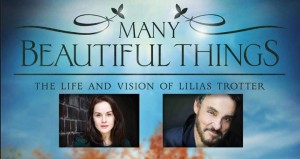 When it’s hot outside one of the coolest things to do is watch a movie. Aside from going well with popcorn and cold drinks, movies go very well with discussion, because every movie has a message. Every writer, director and producer has a worldview, a view of truth about the way the world works. And it always finds expression in their movies.
When it’s hot outside one of the coolest things to do is watch a movie. Aside from going well with popcorn and cold drinks, movies go very well with discussion, because every movie has a message. Every writer, director and producer has a worldview, a view of truth about the way the world works. And it always finds expression in their movies.
A good movie discussion will tease it out and help us think about how it lines up (or doesn’t) with a Christian worldview. What is the movie’s message? Is the message true? Movies are best enjoyed in families and community where we can ask 10 Key Worldview Questions (below) and more.
Movies don’t just tell us ideas, they show them in the context of a story. A well-told story can connect with our hearts in ways that facts and precepts do not.
C.S. Lewis has said that we have two ways of knowing: imagination and reason. By engaging our imaginations, stories/movies can torch our desires, making an end run around our reason. So we need to take a closer look at stories to see how they line up with our reason and belief. (If you look at Lewis’s life, it’s interesting to see how he stopped writing books on apologetics and started writing books working the same Biblical ideas into stories.)
Movies don’t just show ideas in the context of a story, the best ones are enfolded in good art. We enrich ourselves and our children when we learn to appreciate the beauty of that art. As Christian theologian Francis Schaeffer said in Art and the Bible,
We are not being true to the artist as a man if we consider his art work junk simply because we differ with his outlook on life. Christian schools, Christian parents and Christian pastors often have turned off young people at just this point. Because the schools, the pastors and the parents did not make a distinction between technical excellence and content, the whole of much great art has been rejected by scorn or ridicule. Instead, if the artist’s technical excellence is high, he is to be praised for this, even if we differ with his world view. Man must be treated fairly as man.
 We and our children will be drawn to the power and beauty of good stories, good art. But we owe it to ourselves and to them to learn to discern whether the technical excellence of that art illumines the good, the true, and the beautiful. Again from Schaeffer’s Art and the Bible:
We and our children will be drawn to the power and beauty of good stories, good art. But we owe it to ourselves and to them to learn to discern whether the technical excellence of that art illumines the good, the true, and the beautiful. Again from Schaeffer’s Art and the Bible:
“We should realize that if something untrue or immoral is stated in great art it can be far more destructive and devastating than if it is expressed in poor art or prosaic statement…But the greater the artistic expression, the more important it is to consciously bring it and its world view under the judgment of Christ and the Bible.”
Conversely, many movies with strong Christian messages are pretty poor when it comes to technical excellence. Their stereotypes and sentimentality fail to reflect the nuances and complexities of living in today’s world. Not every real story in this lifetime ends in happily ever after, but many Christian movies insist on putting a bow on everything.
Movies are a gray area where each of us stands or falls before our Master. We shouldn’t watch movies that stir up lust or greed. But neither should we limit ourselves to movies with a simplistic, God-always-redeems-everything-in-90-minutes message.
Where can we find recommendations for good movies?
 I always appreciate the movie reviews in World magazine.
I always appreciate the movie reviews in World magazine.
Usually Christianity Today as well. CT makes an annual list of “Best Movies” and “Most Redemptive Movies” by year for subscribers.
I highly recommend Chuck Colson’s “50 Films That Every Family Should See.”
Many of Colson’s recommendations include classic movies, often a great source for bringing a Christian worldview to life. At Onalee McGraw’s Educational Guidance Institute you can buy and download study guides to use classic movies to help students understand what they believe and why they believe it.
You can find many of my own movie reviews by selecting the “Movies TV NET” category button below my picture in the header.
Ten Questions to Help Discover a Story/Movie’s Worldview
Asking and answering these questions helps us peel back the layers of a story or movie to discover the hidden assumptions that are driving the message. Not all these basic beliefs are woven into every story. Some worldviews borrow basic beliefs from different worldviews. (I believe the most consistent and coherent worldview is Biblical Christianity.)
Asking the right worldview questions of a movie can make for a deep, rich and fun discussion. And help us really think about the movies we watch. (You can glean a quick overview of Christian, Modern and Postmodern worldviews in this post. )
- What is ultimately real? Just the material world? Only what we see? Or is there an unseen world as well? One that transcends and is ultimately more important than the physical world?
- Who is God? Something we created? Is he ultimately real? Is he part of creation or does he exist apart from it? Is he the source of light and love? Is he a person with emotions and a will? Does he judge us? Is he ultimately in control? Does he love us?
- How do we know what is true? Are science, logic and evidence the only real and reliable way of knowing truth? Is the Bible a reliable source of truth from God? Or another source of revelation? Is each individual the source of his or her own truth? Is our ultimate guide to simply follow our hearts? Or follow the Divine within or a divine spirit guide?
- How do we know what is good? Can science tell us what is good? Is the Bible our ultimate guide to goodness? Or another source of revelation? Do we decide what is good in our own hearts?
- Who are we? Highly evolved animals? Material and spiritual beings? Essentially One with the Divine? Material, separate beings made in the image of God?
- Where did we come from? Have we spontaneously generated/evolved from matter? Are we created in God’s image? Some combination of the two?
- What is wrong with the world? Lack of education and knowledge? Lack of money or opportunity? Failure to love? Turning away from God and going our own way?
- How can it be fixed? More education, money, and opportunity? Tapping into the divine within us? Trying harder to love and forgive? The redemptive sacrifice of Jesus Christ?
- How do we find meaning in life? Do we make our own meaning? Do we find meaning in pleasure and having fun? Is love the ultimate source of meaning? Do we find meaning in relationship? With whom? Others? God? Do we find meaning in our work? Do we find meaning in fixing what is wrong in the world?
- Where are we going? What happens to us when we die? Do we cease to exist? Will God welcome us to be with him forever? Will he welcome everyone? Will we face judgment? By whom? Will the good we’ve done earn us a place in heaven? Have we been good enough? How do we know? Is believing in Jesus the only thing that matters?
Once we probe the hidden assumptions of a movie we can ask questions specific to each movie as to how it lines up with the way of Jesus or not.
If you know of other good resources for movies like the ones mentioned here, please share them in the comment section below. Do you recommend a good movie? Share it too.
I would recommend most of these pictured above. I’d recommend LaLa Land to discuss with questions raised in my review. And Wrinkle in Time to discuss Oprah’s Pantheistic worldview and how it differs from Biblical Christianity, which I’ll blog about next time.



Please note: I reserve the right to delete comments that are offensive or off-topic.